Understanding the Advantages of High Tensile Carriage Bolts for Structural Integrity in Modern Constructions
In the realm of modern construction, the significance of using robust fastening solutions cannot be overstated. Among these, the High Tensile Carriage Bolt stands out as a critical component that ensures structural integrity across various applications. According to a recent industry report by the American Institute of Steel Construction, the demand for high tensile fasteners has surged by over 25% in the past five years, driven by the increasing complexity of building designs and the necessity for enhanced load-bearing capabilities. These bolts, designed to withstand greater stress and strain compared to standard equivalents, play a vital role in improving the overall reliability and durability of structures. Additionally, engineering research indicates that implementing high tensile carriage bolts can reduce failure rates in load-bearing joints by as much as 30%. As the construction industry continues to evolve, the adoption of high tensile carriage bolts will remain paramount in achieving safe and enduring buildings.
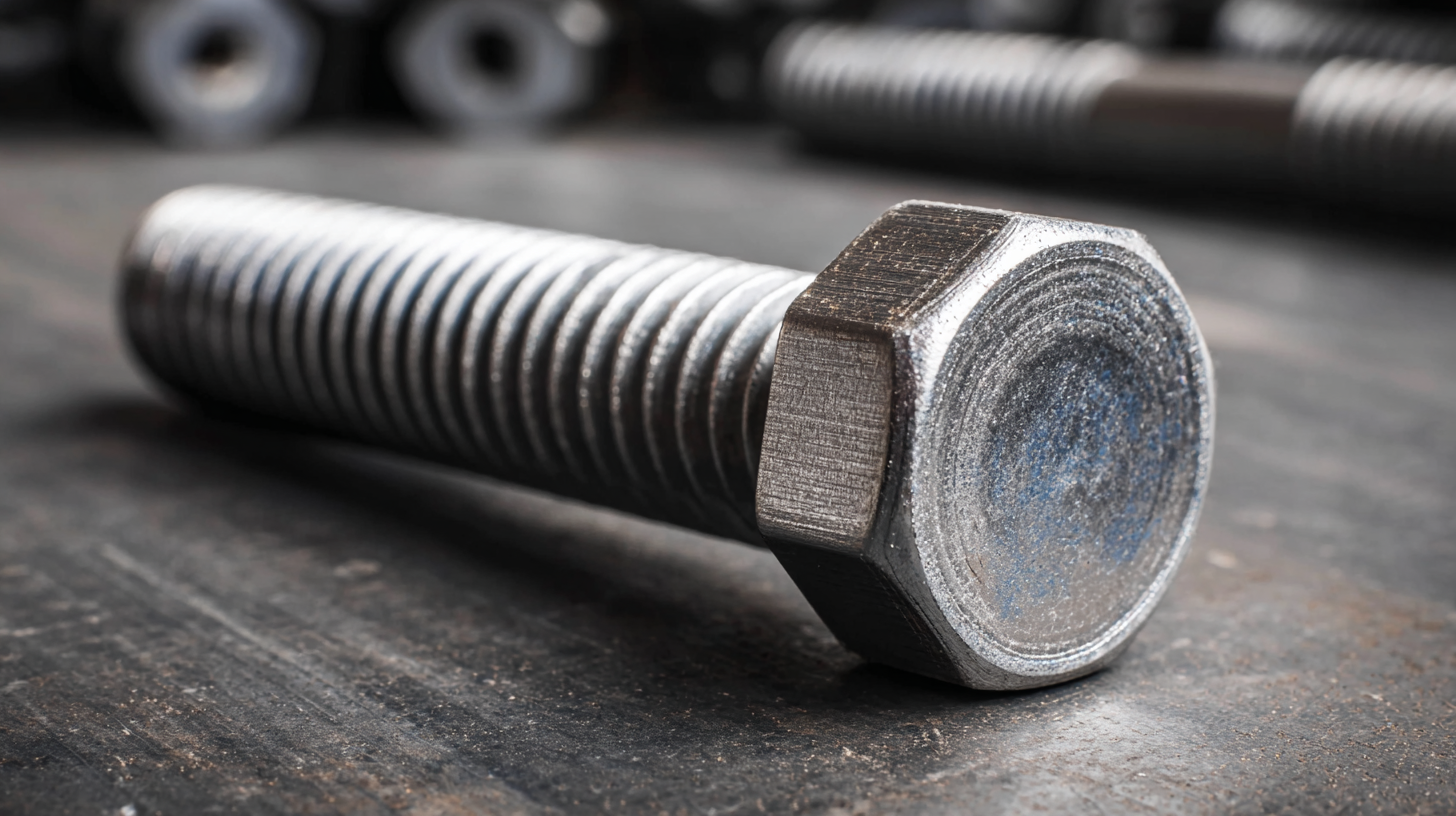
Benefits of High Tensile Carriage Bolts in Modern Construction Practices
High tensile carriage bolts play a crucial role in modern construction practices, providing numerous benefits that enhance structural integrity. One of the primary advantages of these bolts is their ability to withstand significant loads and stresses. Made from high-strength materials, they ensure that connections between different structural components are secure and durable. This resistance to deformation under pressure is vital for maintaining the overall stability of a building, particularly in environments prone to dynamic forces, like earthquakes or high winds.
Additionally, high tensile carriage bolts contribute to faster and more efficient assembly processes. Their design, which features a rounded head and a square neck, allows for easy installation and reliable locking into place. This feature not only streamlines construction timelines but also reduces the risk of loosening over time, which is often a concern with conventional fasteners. Furthermore, their versatility in applications—from timber to metal connections—makes them an ideal choice for a wide range of modern building projects.
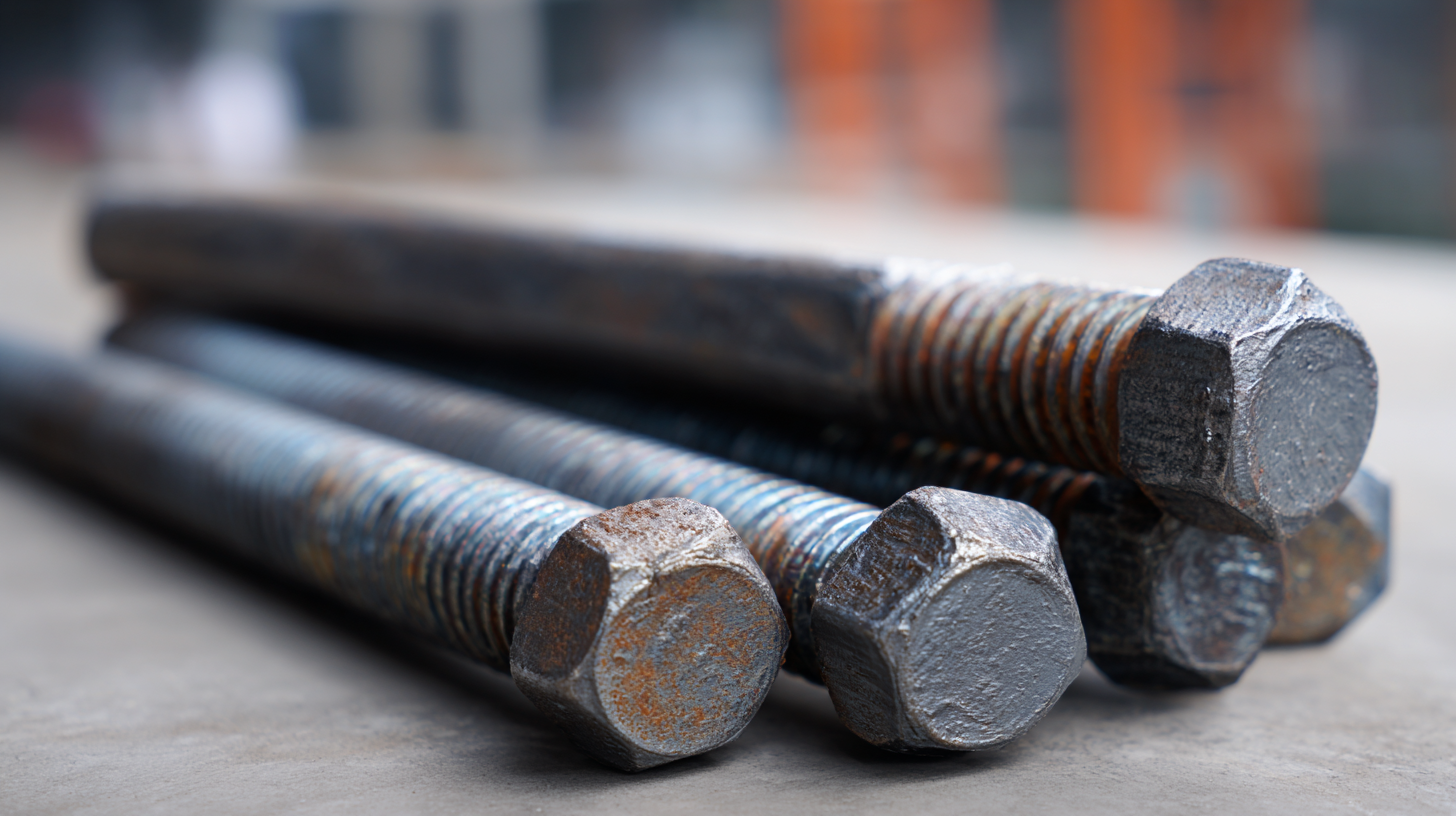
Key Properties of High Tensile Carriage Bolts Enhancing Structural Integrity
High tensile carriage bolts are crucial components in modern construction, offering several key properties that significantly enhance structural integrity. One of their primary advantages is their high tensile strength, which allows them to withstand substantial loads without deformation or failure. This strength is particularly vital in high-stress applications, such as bridges and skyscrapers, where safety and durability are paramount. Additionally, these bolts are designed to distribute stress evenly across a joint, minimizing the risk of localized damage and extending the lifespan of structural elements.
Furthermore, the resistance of high tensile carriage bolts to corrosion and fatigue also plays a vital role in maintaining structural integrity. Their surface treatments and materials are engineered to endure harsh environmental conditions, ensuring reliable performance over time. As construction methods evolve, similar to advancements seen in 3D printing technologies, the integration of high tensile carriage bolts into designs exemplifies a commitment to optimizing material properties for better performance. By utilizing components that reinforce stability and safety, modern constructions can achieve higher standards of resilience and functionality.
Understanding the Advantages of High Tensile Carriage Bolts for Structural Integrity in Modern Constructions
| Property | Description | Advantages |
|---|---|---|
| Tensile Strength | The maximum amount of tensile (pulling) stress that a material can withstand before failure. | Provides enhanced durability and prevents structural failure in load-bearing applications. |
| Corrosion Resistance | The ability to withstand deterioration due to oxidation or other chemical reactions. | Increases longevity of structures by ensuring fasteners do not degrade over time. |
| Thread Design | Specific design of threads that enhance the gripping power. | Improves load distribution and minimizes the risk of loosening under vibration. |
| Size Variety | Availability in various sizes and lengths for different applications. | Allows for flexibility in construction design and implementation. |
| Ease of Installation | Designed for quick and efficient installation. | Reduces labor costs and construction time significantly. |
Comparative Analysis: High Tensile vs. Low Tensile Carriage Bolts
The choice between high tensile and low tensile carriage bolts is critical in ensuring the structural integrity of modern constructions. High tensile bolts are engineered to withstand greater loads and stresses, which translates to enhanced durability in high-demand environments. This is particularly evident when analyzing failures, such as the recent case involving bolts in a deluge valve bonnet in a cooling tower system. The reported cracking and breaking of machine bolts underscore the vulnerabilities associated with using lower tensile options in critical applications.
Low tensile carriage bolts may offer initial cost savings, but they often fall short in performance, especially in high-stress scenarios. As seen in the petrochemical plant incident, inadequate bolt strength can lead to catastrophic failures, potentially compromising safety and operational efficiency. On the contrary, high tensile carriage bolts provide superior resistance to fatigue and environmental factors, making them the preferred choice in construction practices where reliability is paramount. This comparative advantage reinforces the necessity for careful material selection in structural applications, where the implications of using substandard components can be severe.
Understanding the Advantages of High Tensile Carriage Bolts for Structural Integrity in Modern Constructions
Applications of High Tensile Carriage Bolts in Load-Bearing Structures
High tensile carriage bolts are increasingly recognized for their pivotal role in load-bearing structures across various modern constructions. These bolts are engineered to withstand substantial tensile forces, making them ideal for applications where structural integrity is paramount. In settings such as bridges, high-rise buildings, and industrial facilities, the strength and durability of high tensile carriage bolts ensure reliable connections between components, significantly enhancing overall structural stability.
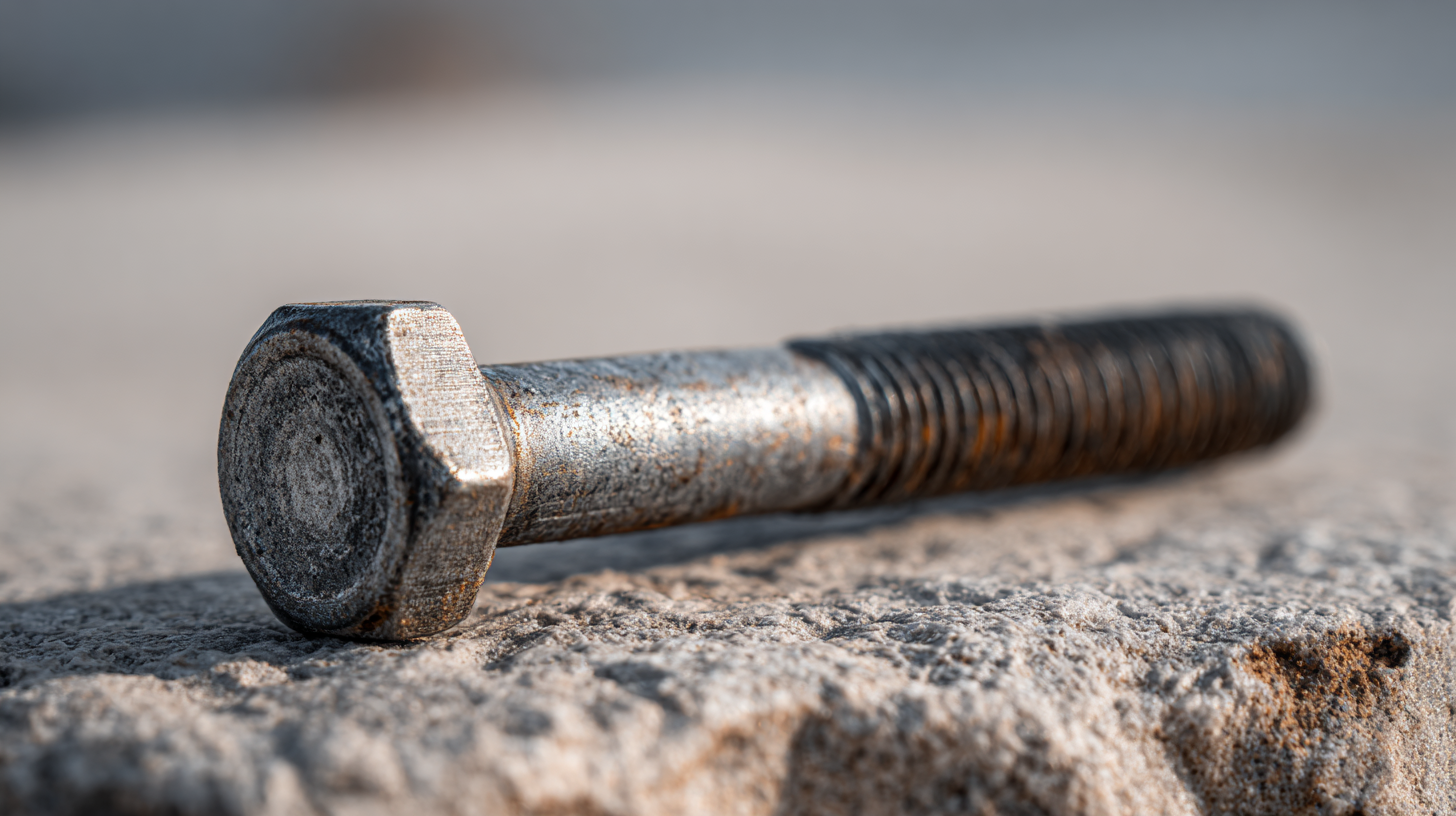
Moreover, the applications of these bolts extend beyond mere fastening. They are integral in composite base plates, which are essential in distributing loads efficiently across structures. Recent advancements in processing technologies and numerical simulation studies further highlight the performance of high tensile carriage bolts in optimizing the dynamic characteristics of these systems. By effectively handling stress and reducing the risk of failures, high tensile carriage bolts play a crucial role in ensuring that modern constructions can meet the demands of safety, performance, and longevity.
Future Trends in High Tensile Bolts for Sustainable Construction Solutions
The construction industry is rapidly evolving to prioritize sustainability and efficiency. As advancements in materials technology emerge, the use of high tensile carriage bolts is becoming more prevalent due to their superior structural integrity. These bolts not only enhance the durability of constructions but also align with green building practices, ensuring a longer lifespan and reduced maintenance needs. This trend is complemented by innovative startups focusing on sustainable solutions, showcasing a growing commitment to environmental stewardship within the construction sector.
Tips for incorporating high tensile carriage bolts into your projects include ensuring proper load calculations and material compatibility, which can significantly enhance safety and performance. Additionally, investing in training your workforce on the latest installation techniques can lead to more efficient construction processes.
As the future of modular construction unfolds, structural steel continues to play a pivotal role. It facilitates rapid construction timelines while maintaining high standards for sustainability. Embracing these materials and innovative approaches not only positions businesses at the forefront of industry trends but also ensures that they contribute positively to the environment.
Related Posts
-
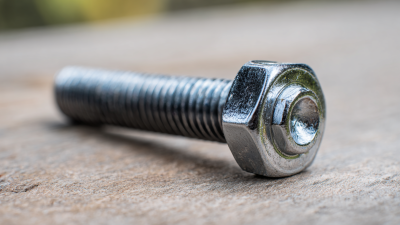
How to Choose the Perfect Hot Sale Carriage Bolt for Your Project
-
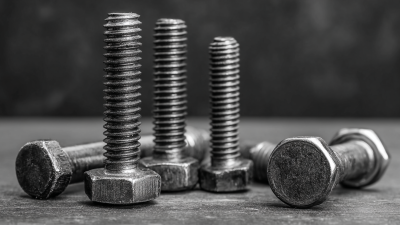
How to Choose the Right High Tensile Carriage Bolt for Your Project Needs
-
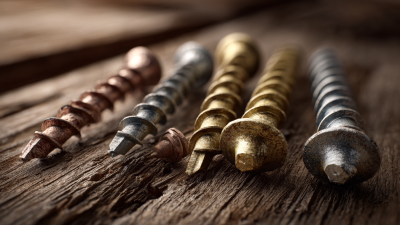
The Ultimate Guide to Choosing the Right Wood Screw for Your DIY Projects
-
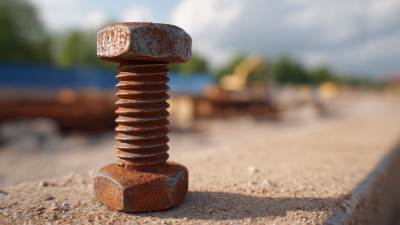
Understanding the Importance of Carriage Bolt Selection in Construction Projects
-
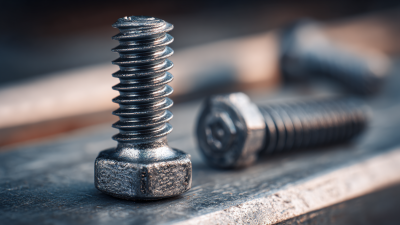
Understanding the Importance of Torx Screws in Modern Engineering
-
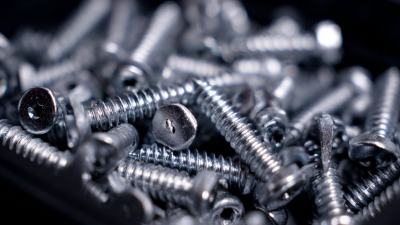
Exploring the Growth of Torx Screw Demand at the 138th Canton Fair China 2025: Insights and Trends
